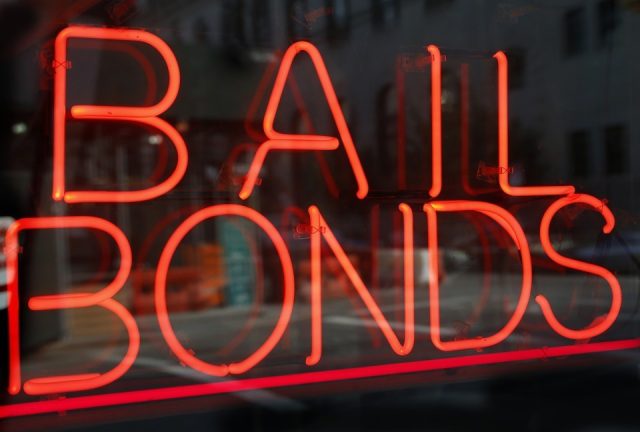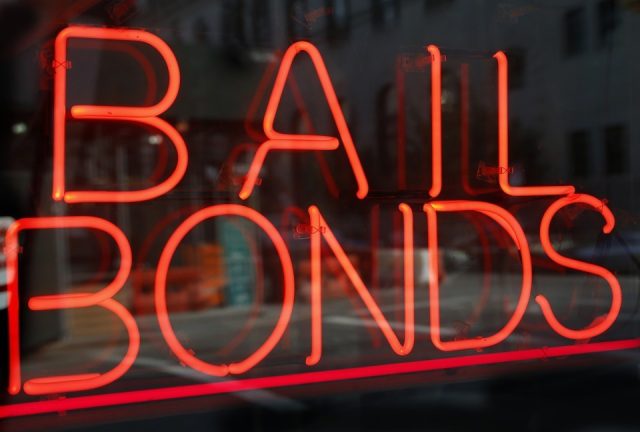[ad_1]
By Myesha Braden and Veryl Pow, Special to the AFRO
Each day, about 4,000 people are held in Baltimore City jails on pretrial detention, many because they cannot afford to make bail. In theory, judges set bail at an affordable amount sufficient to incentivize criminal defendants – whom the law presumes to be innocent – to return to court and appear at trial. In practice, however, bail is routinely set at amounts exceeding the means of most defendants. The average bail amount for low-risk defendants is $51,000; yet in the five Baltimore neighborhoods most effected by pretrial detention, the average median income is only $26,000. High pretrial detention rates is one major component of mass incarceration and national studies have shown that bail determination decisions are particularly susceptible to, and influenced by, stereotypes and bias based on race. It is no surprise then that in Baltimore City, 89 percent of the individuals being held in custody are Black, despite being only 64 percent of the population.

When they cannot afford to pay bail, families contract with bail bondsmen to secure release for their loved ones. Doing so carries a steep price for low-income communities of color, particularly when bail companies demand unaffordable collection amounts and charge exorbitant interest rates. These practices can trap families within a web debt and risk of incarceration, from which it is often impossible to escape.
In attempting to remedy pretrial practices that make a person’s access to freedom contingent upon their ability to pay, bail reform advocates have deployed various legislative and litigation strategies to reform money bail. Last year, these efforts bore fruit when the Maryland Court of Appeals adopted Rule 4-216.1. The Rule aims both to reduce the number of criminal defendants held in pretrial detention solely because of their inability to pay money bail, and to establish a presumption in favor of release. Early reports indicate that the use of money bail has declined since the Rule took effect in August 2017.
Unfortunately, for every inch of meaningful progress gained on bail reform, the for-profit commercial bail industry, which generates $2 billion in profit each year, has fought tooth-and-nail to see it rolled back. Through campaign donations and intensive lobbying efforts, the industry has mounted a full-throated effort to stymie meaningful bail reform. Maryland ranks third highest in the nation for campaign donations by the bail industry. That industry players have been able to fund a counterattack against bail reform is made worse by the efforts of local bail bond companies that are attempting to collect on bail bond contracts that are laden with statutory and regulatory violations.
The Lawyers’ Committee for Civil Rights Under Law, a nonpartisan, nonprofit organization working to eliminate pretrial and bail practices that make an individual’s access to freedom dependent upon their ability to pay, has been investigating one specific violation over the past few months. In the State of Maryland, companies that are unlicensed may neither enter into bail bond contracts nor engage in any bonding activities. The Maryland Court of Appeals has held that unlicensed companies are not entitled to the assistance of courts in enforcing contracts where the underlying licensing statutes are regulatory in nature.
Despite the law, in recent years, one particular unlicensed company, Baltimore’s Discount Bail Bonds (BDBB), has been flooding the Baltimore City and County District Court dockets with debt collection complaints and winning judgments. BDBB currently has 149 pending cases in District Court seeking to collect some $862,111.81. These numbers do not include those who have already had judgements entered against them.
The Lawyers’ Committee has notified the Maryland judiciary about BDBB and requested the dismissal of all pending lawsuits filed by BDBB. We have also asked the Court to prohibit the enforcement of past judgments entered in favor of BDBB. Though District Court Chief Judge John Morrissey responded stating he was not aware of any authority for the Court to dismiss cases on its own, we believe Maryland case law clearly establishes the District Court’s authority to dismiss these cases on its own, without requiring victims of BDBB’s practices to expend any additional resources.
Pretrial and bail practices that entrap the poor in a cycle of escalating debt and unnecessary incarceration proliferate within our criminal justice system. If you or a loved one entered into a contract with BDBB, please contact the Lawyers’ Committee at (866)996-7921 or [email protected].
Myesha Braden is the Director of the Criminal Justice Project at the Lawyers’ Committee for Civil Rights Under Law. Veryl Pow is a Skadden Fellow at the Lawyers’ Committee for Civil Rights Under Law.
[ad_2]
Source link


